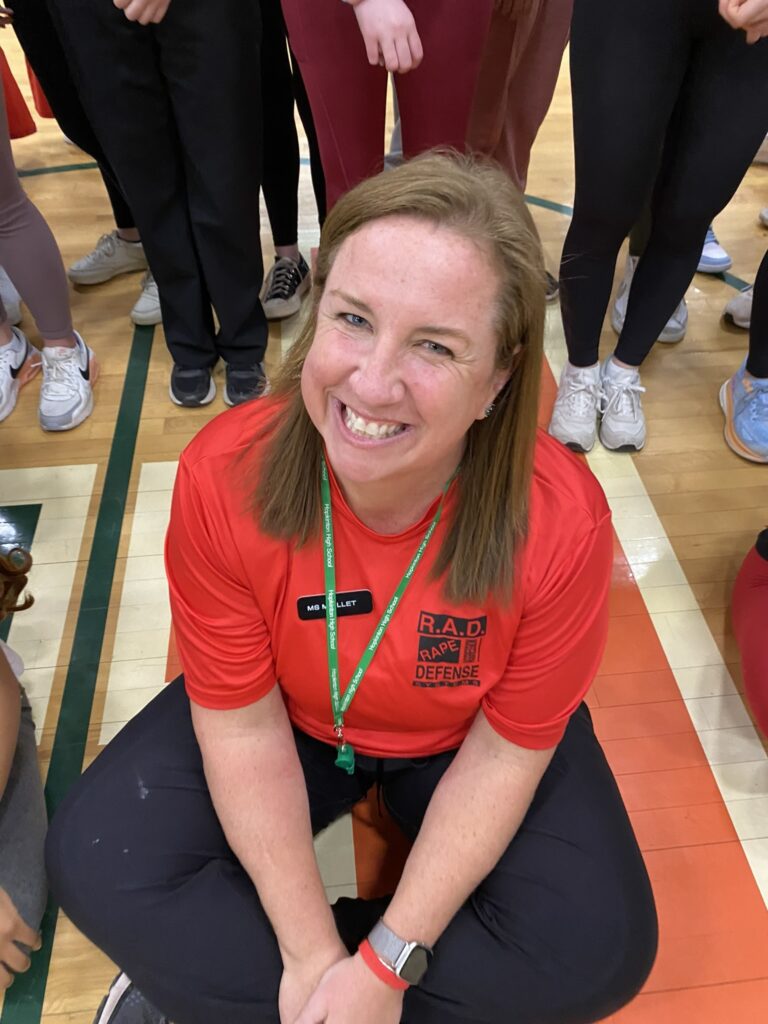
HHS wellness teacher Diane Maillet helped bring a RAD program to Hopkinton High School.
Hopkinton High School student Amisi Anjeh said she watched herself transform from “the timid girl who can’t speak up and over-apologizes” last year to a graduating senior “who knows the power of the word ‘no.’ ”
Anjeh attributes that personal growth to her participation in the Rape Aggression Defense system (RAD) program, an elective wellness course offered for HHS junior and senior girls.
HHS wellness teacher Diane Maillet noted the semester-long course has been offered since 2011 with a break during COVID. When the class resumed in 2021-22, enrollment reached a high of 163 students. This most recent school year had 94 participants.
In addition to teaching self-defense techniques, RAD builds the young women’s self-awareness and gives them permission to stand up for themselves, according to Heather Stone, a lawyer who is a trained and certified instructor.
“RAD is technique-based and not strength-based,” Stone said. “Women have been taught their whole lives to be quiet and not make a scene, that they are weaker. … This [program] shows them they are not and is super empowering for them.”
Participants recognize the benefits beyond the physical self-defense aspects.
Junior Presley Schuler said the biggest takeaway she got from RAD is more confidence.
“As I am out in the world, it’s a great feeling to know I can protect and defend myself if anything ever happened.”
Added Anjeh, “Predators tend to prey on people they deem vulnerable, and by showing confidence, real or fake, potential attackers know that you are not someone to be messed with.”
Stone said RAD typically is offered at college campuses, a time when women often have moved away from their support systems. She says Hopkinton has been a “pioneer” by offering it to older high school girls, which she finds is a perfect age group to learn these skills.
Noting that statistics indicate one in three women will be physically attacked in their lifetime, Stone described the culmination of the course, a half-day simulation event held in April.
Police personnel from neighboring departments act as “aggressors,” simulating different types of attacks, allowing students to use the mental and physical techniques they learned in class to react and escape the scenarios.
Stone explained there are a dozen scenarios that can be chosen for the simulation; at Hopkinton, these included a walk-by attack, one standing at an ATM and an abduction from behind.
On standby for the students are counselors, a therapy dog, a wellness instructor and a group of classmates to watch and encourage them. In addition, each participant has a control monitor to provide reminders and help if the participant is struggling with what to do.
At the conclusion, the students sit in a circle to talk about the experience and share pizza. Stone noted that some young women already have been subjected to sexual violence in “real life.” Steps are taken so that it is not a triggering experience, because adults usually do not know about these past attacks.
However, Stone said during her many years of training young women, they all have wanted to finish the simulation, no matter the circumstances.
Following the event, studies have shown students often cannot remember what they did, so they are shown video, which is reviewed with instructors.
Junior Emily Mailloux said she found the simulation stressful and “a little scary. … I don’t usually like fights, and having to unlock that part of myself was challenging.”
Ultimately, it was rewarding for her because she was able to protect herself and gain the knowledge that “no man has any right to touch me in a way I don’t want, and I can fend for myself.”
Even for individuals who aren’t the fighting type, she said, “It’s still very important to know what to do in those types of situations.”
Junior Karen Tang described the feeling she got from the simulation as “pure joy.”
“I didn’t realize how strong and tough I was before the simulation,” she said. “I gained confidence and felt proud of myself as well as my classmates.”
Tang noted RAD taught her to set boundaries and say ‘no’ to people trying to invade her personal space and privacy. She highly recommends the program to other students, adding, “Definitely don’t be afraid, but you have to say ‘no’ sometimes and really step outside that comfort zone. Be prepared.”
Senior Megan Abbott also feels the course is worthwhile for her peers to experience.
“Unfortunately, there are people in the world who will try to do things you aren’t comfortable with,” Abbott said. “It’s not an overly difficult class. It’s just learning the moves and getting that repetition in that will make you unstoppable.”
Maillet said feedback from students, whether on simulation day through thank you cards and conversations or from former students returning from college, reminds her about RAD’s importance.
“RAD impacts these students at different levels and also at different times,” she said. “I have students who start the semester with me and have clearly already had a negative experience, and I also have students who are fearful at the idea of standing up and protecting themselves,” she said.
“To see them become empowered and succeed at simulation is the best kind of feedback that I could ever receive.”
Maillet said she also hears positive feedback from parents, who wished they had the opportunity to take the class when they were in high school.
Stone explained that there are RAD programs for other populations, each having different components.
Men, she said, are likely to break down during training because they are not usually accustomed to feeling so helpless.
RAD for pre-kindergarten through Grade 12 places more emphasis on personal empowerment, learning about personal boundaries and making good decisions in general.
And there is a RAD program for senior citizens that caters to that population’s needs.
No matter the population, Stone believes showing people what they can do outweighs just telling them.
Looking through thank you notes, Stone recalled a few from students who are gender questioning or transgender. “They write it is the first time they’ve felt safe or empowered, which I find just amazing,” she said.


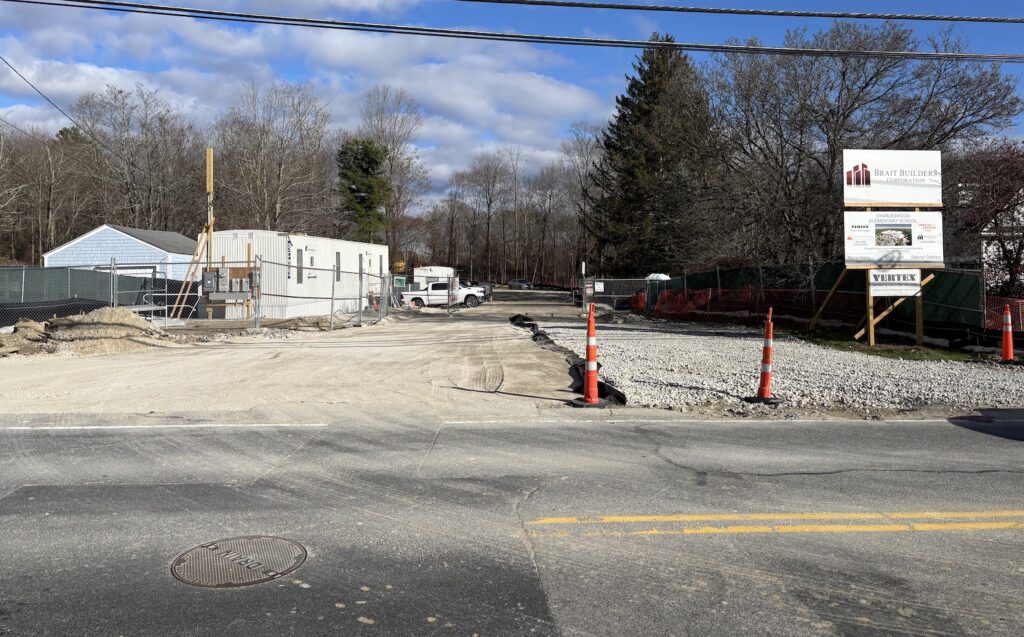
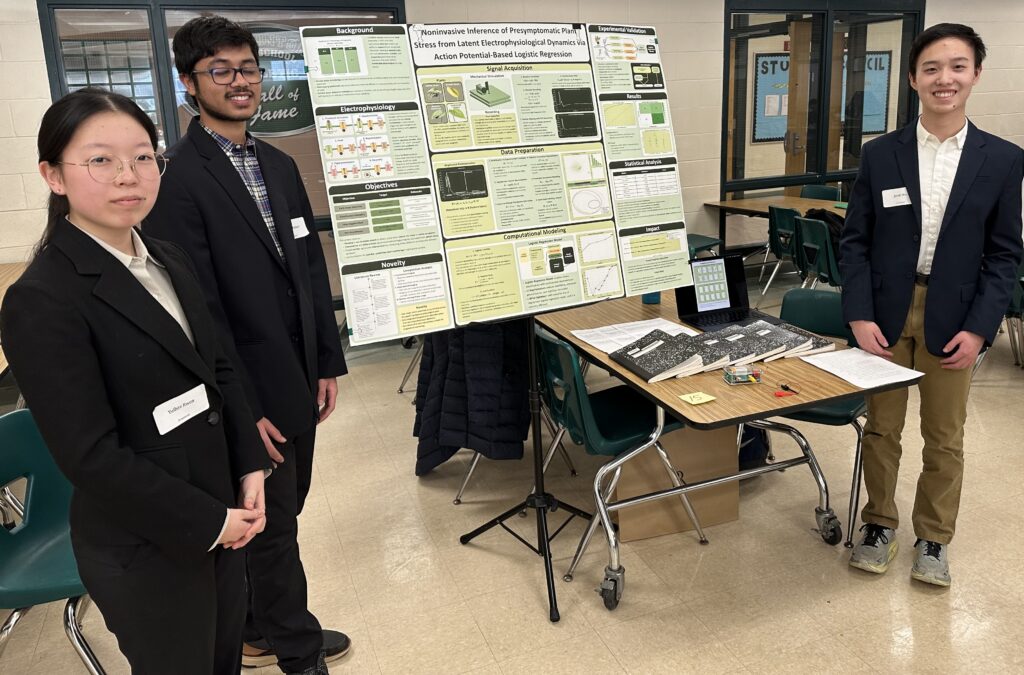


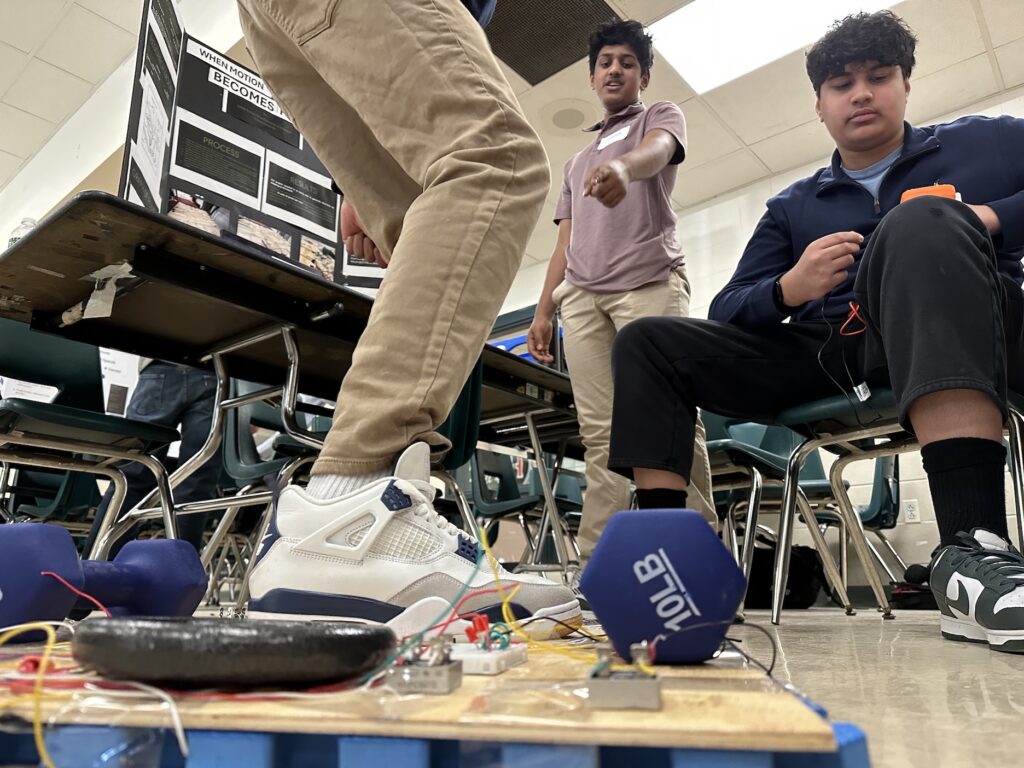
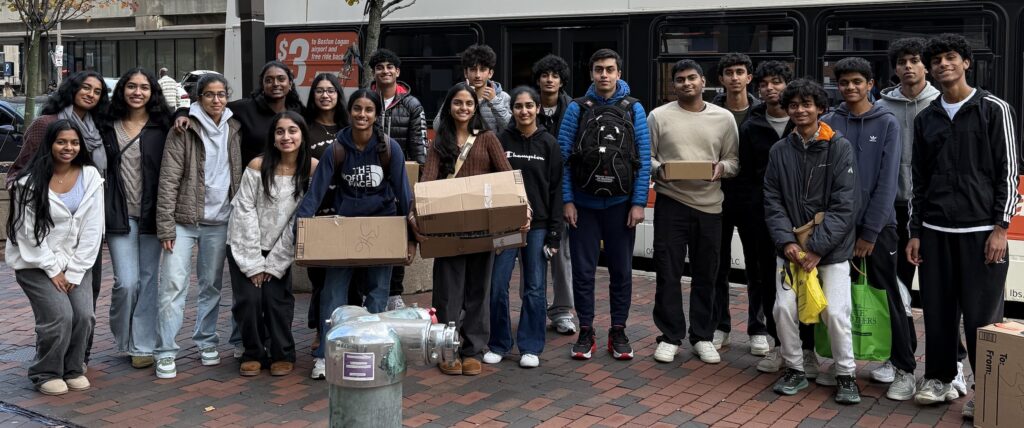













0 Comments